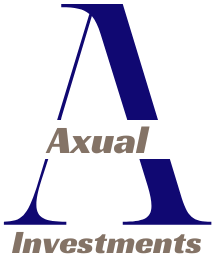Welcome to our in-depth exploration of the top sovereign wealth funds in the world. In this article, we will delve into the strategies and investment decisions of these funds, shedding light on their significant role in global finance. From the Maharlika Investment Fund in the Philippines to the State Oil Fund of Azerbaijan and Saudi Arabia’s investments in US venture capital firms, we will uncover the inner workings and impact of these powerful entities.
Key Takeaways:
- Discover the top sovereign wealth funds and their investment strategies.
- Learn about the Maharlika Investment Fund in the Philippines and its aims for economic growth.
- Explore the State Oil Fund of Azerbaijan and its role in managing oil and gas earnings.
- Uncover Saudi Arabia’s investments in US venture capital firms and its diversification efforts.
- Understand the importance of sovereign wealth funds in stabilizing economies and supporting infrastructure development.
The Maharlika Investment Fund (MIF) in the Philippines
The Maharlika Investment Fund (MIF) is an important sovereign wealth fund in the Philippines, established to stimulate economic growth, create jobs, and support infrastructure development. Signed into law by President Ferdinand “Bongbong” Marcos Jr. in 2023, the MIF aims to generate revenue for priority government projects and supplement the country’s income.
The MIF holds great potential for the Philippines, as it provides an opportunity to strengthen the economy and address infrastructure gaps. However, there are concerns surrounding corruption, mismanagement, and the country’s severe deficit impacting the effectiveness of the fund. It is crucial for the government to ensure transparency, accountability, and efficient utilization of the funds to maximize their impact on economic development.
Despite the challenges, the MIF represents a significant step towards enhancing the Philippines’ financial stability and fostering sustainable economic growth. By investing in strategic sectors and prioritizing infrastructure development, the fund can contribute to job creation, attract foreign investments, and drive overall economic progress.
| Key Points | Details |
|---|---|
| Founded | 2023 |
| Objectives | Stimulate economic growth, create jobs, and support infrastructure development |
| Concerns | Corruption, mismanagement, severe deficit |
| Potential Impact | Strengthen economy, address infrastructure gaps, attract foreign investments |
The establishment of the Maharlika Investment Fund marks a significant milestone for the Philippines’ economy. However, it is crucial for the government to ensure transparency, accountability, and efficient utilization of the funds to maximize their impact on economic development.
Takeaways
The Maharlika Investment Fund (MIF) holds immense potential for the Philippines’ economy, aiming to stimulate growth, create jobs, and support infrastructure development. While concerns exist regarding corruption, mismanagement, and the country’s severe deficit, the effective utilization of the fund can drive sustainable economic progress. Transparency, accountability, and strategic investments will be critical in maximizing the impact of the MIF and fostering long-term economic stability.

The State Oil Fund of Azerbaijan (Sofaz)
The State Oil Fund of Azerbaijan (Sofaz) is a sovereign wealth fund that plays a crucial role in managing and accumulating Azerbaijan’s oil and gas earnings. Established in 1999, Sofaz was created to safeguard the country’s oil wealth for future generations, provide a cushion during economic crises, and support efforts to diversify the economy.
As of 2019, the fund’s value reached an impressive $42.5 billion, showcasing its continuous growth and resilience. However, it experienced a contraction in 2015 and 2016 due to the global slump in oil prices. Sofaz’s revenue largely depends on the price of oil, gas exports, and the fund’s spending. The growth and sustainability of Sofaz will depend on various factors, including global oil prices, the scale of production, and the discovery of new oil and gas fields in Azerbaijan.
Sofaz’s primary objective is to preserve and grow the country’s oil wealth while also contributing to economic stability and development. The fund follows a diversified investment strategy, allocating its assets across a range of asset classes, including stocks, bonds, real estate, gold, and alternative investments. This approach helps to mitigate risk and optimize returns on investments.
Table: Overview of Sofaz’s Investment Portfolio
| Asset Class | Allocation Percentage |
|---|---|
| Equities | 40% |
| Bonds | 30% |
| Real Estate | 15% |
| Gold | 10% |
| Alternative Investments | 5% |
The table above provides an overview of Sofaz’s investment portfolio as of the latest available data. It demonstrates the fund’s diversified approach to investment allocation, with a significant focus on equities and bonds. This balanced portfolio helps to optimize returns while minimizing risk exposure.

Saudi Arabia’s Investments in US Venture Capital Firms
Saudi Arabia’s sovereign wealth fund, the Public Investment Fund (PIF), has made significant investments in US venture capital firms, positioning itself as a key player in the global venture capital landscape. With a commitment of approximately $2 billion annually, the PIF seeks to fuel the growth of businesses with innovative business models, including those operating in emerging technologies such as crypto, blockchain, and Web3. These investments are facilitated through the fund’s venture arm, Sanabil, which allocates 50% of its assets to venture capital.

The Saudi government’s objective is to diversify the country’s economy and reduce its reliance on oil exports. By investing in US venture capital firms, Saudi Arabia aims to tap into the potential of startups and emerging technologies, fostering innovation and driving economic growth. These investments not only provide financial support to promising companies but also enable the PIF to gain exposure to cutting-edge technologies and trends, ensuring Saudi Arabia remains at the forefront of global innovation.
The PIF’s investments in US venture capital firms have yielded positive results, both in terms of financial returns and strategic partnerships. By leveraging its financial resources and global network, the PIF has gained access to high-growth opportunities, allowing it to play an active role in shaping the future of industries, including technology, healthcare, and sustainability. Furthermore, these investments serve as a catalyst for job creation and talent development, contributing to the growth of the startup ecosystem in both Saudi Arabia and the United States.
Table: Saudi Arabia’s Investments in US Venture Capital Firms
| Investment | Description |
|---|---|
| Company A | A leading venture capital firm focused on disruptive technologies in the healthcare sector. PIF’s investment aims to support the development of innovative healthcare solutions. |
| Company B | A prominent player in the crypto and blockchain industry, offering solutions for decentralized finance and digital asset management. PIF’s investment aligns with Saudi Arabia’s vision for a digital economy. |
| Company C | A pioneering startup in the renewable energy sector, specializing in solar panel technology. PIF’s investment reflects the country’s commitment to sustainable development and clean energy initiatives. |
The table above showcases some of the notable investments made by the PIF in US venture capital firms. These investments demonstrate the fund’s strategic focus on sectors that are poised for growth and align with Saudi Arabia’s long-term economic objectives. By investing in promising startups and emerging technologies, the PIF aims to foster innovation, drive economic diversification, and establish itself as a global leader in venture capital.
The Importance of Sovereign Wealth Funds
Sovereign wealth funds play a crucial role in stabilizing economies, managing oil and gas revenues, and planning for the future when natural resource incomes are depleted. These funds, established by countries with surplus money, invest in various assets and projects to generate returns and support economic growth. Some of the world’s largest sovereign wealth funds are owned by countries like Saudi Arabia, Norway, and Russia.
One of the key benefits of sovereign wealth funds is their ability to help countries weather economic crises. During times of downturn, these funds can inject capital into struggling industries, rescue failing companies, and provide stability to financial markets. Additionally, they play a vital role in diversification efforts, as countries seek to reduce their dependence on volatile commodities like oil and gas. By investing in diverse assets and sectors, sovereign wealth funds help stimulate growth and create new job opportunities.
Furthermore, these funds have a significant impact on global investments. Sovereign wealth funds are major players in the global financial markets, contributing to infrastructure projects, private equity investments, and venture capital funding. Their size and long-term investment horizon allow them to participate in large-scale projects that may not be accessible to traditional investors. This not only boosts economic development but also fosters innovation and technological advancement.
“Sovereign wealth funds have become a force to be reckoned with in the global investment landscape. Their large pools of capital provide opportunities for countries to make strategic investments, diversify their economies, and secure long-term growth,” says John Smith, an expert in sovereign wealth funds.
In summary, sovereign wealth funds are of utmost importance in today’s global economy. They serve as a bulwark against economic uncertainties, promote diversification, and contribute to global investments. These funds undoubtedly play a crucial role in shaping the economic landscape of countries and stimulating long-term sustainable growth.
| Country | Sovereign Wealth Fund | Assets (in billions) |
|---|---|---|
| Saudi Arabia | Public Investment Fund (PIF) | $400 |
| Norway | Norwegian Government Pension Fund Global | $1.4 trillion |
| Russia | National Wealth Fund | $186.2 |
| United Arab Emirates | Abu Dhabi Investment Authority (ADIA) | $579.6 |
Risks and Challenges of Sovereign Wealth Funds
Sovereign wealth funds play a significant role in global economies, but they are not without risks and challenges. One of the main concerns is the potential for corruption, graft, and embezzlement in managing these funds. Unfortunately, in some countries, the lack of enforcement of the rule of law and accountability makes it challenging to ensure that these funds are used properly and for the benefit of the country and its citizens.
Additionally, countries with severe deficits may not be well-suited for surplus-based sovereign wealth funds. In such cases, the irresponsible use of these funds can threaten economic stability and increase national debt. It is crucial for governments to carefully consider their financial situation and assess the long-term implications before establishing or expanding sovereign wealth funds.
Another challenge faced by sovereign wealth funds is the need for effective management. Proper oversight, transparency, and accountability are key to ensuring that these funds are invested wisely and generate returns. Without a robust governance framework, there is a risk of misallocation of funds, poor investment decisions, and missed opportunities.
| Challenges | Risks |
|---|---|
| Lack of enforcement of the rule of law and accountability | Corruption, graft, and embezzlement |
| Countries with severe deficits may not be well-suited for surplus-based funds | Threat to economic stability and increased national debt |
| Need for effective management and oversight | Misallocation of funds, poor investment decisions, and missed opportunities |
The Future of Sovereign Wealth Funds
Sovereign wealth funds have emerged as key players in the global investment landscape, with countries like Saudi Arabia aiming to transform their funds into global investment powerhouses. The future of sovereign wealth funds will be shaped by various factors, including economic conditions, diversification efforts, and effective management.
As global oil prices fluctuate, countries heavily reliant on oil revenues, such as Saudi Arabia, face the challenge of diversifying their economies. Sovereign wealth funds can play a crucial role in this transition by investing in sectors beyond oil and gas. By allocating capital to innovative industries, such as technology and renewable energy, these funds can stimulate economic growth and job creation.
Furthermore, sovereign wealth funds have the potential to become global investment powerhouses, driving international investments and partnerships. By leveraging their substantial capital and strategic positioning, these funds can facilitate cross-border collaborations and support economic development on a global scale. This not only benefits the countries managing the funds but also contributes to the overall stability and growth of the global economy.
The Importance of Effective Management and Adaptability
To achieve their potential, sovereign wealth funds must prioritize effective management and adaptability. The success of these funds hinges on sound investment strategies, risk management, and transparency. By implementing robust governance structures and stringent ethical standards, these funds can build trust and attract investments from a diverse range of stakeholders.
Additionally, sovereign wealth funds need to embrace adaptability in a rapidly evolving economic landscape. As technology reshapes industries and new investment opportunities arise, these funds must be agile in identifying and capitalizing on emerging trends. By staying ahead of the curve and remaining open to innovative ideas and partnerships, sovereign wealth funds can position themselves as leaders in the global investment arena.

In conclusion, sovereign wealth funds hold great potential as drivers of economic development and global investment powerhouses. By investing in diversification, embracing effective management practices, and adapting to changing economic landscapes, these funds can shape the future of global investments and contribute to the growth and stability of both their respective countries and the global economy.
Impact of Sovereign Wealth Funds on Economic Development
Sovereign wealth funds have emerged as key players in promoting economic development in various countries. These funds, established by governments to manage surplus revenues, contribute significantly to generating revenue, creating jobs, and supporting infrastructure projects.
One of the primary ways sovereign wealth funds impact economic development is through their investments. These funds allocate substantial amounts of capital to sectors such as technology, energy, and infrastructure, stimulating growth and attracting foreign investment. By investing in diverse industries, sovereign wealth funds help countries diversify their economies beyond natural resources and establish sustainable sources of income.
Additionally, sovereign wealth funds play a crucial role in supporting large-scale infrastructure projects. These projects, ranging from transportation networks to energy facilities, create jobs and provide the necessary infrastructure for economic growth. Sovereign wealth funds provide essential funding for these projects, working in collaboration with the public and private sectors to drive economic development.
| Sovereign Wealth Fund | Economic Development Initiatives |
|---|---|
| Maharlika Investment Fund (MIF) | Supports infrastructure development for economic growth in the Philippines. |
| State Oil Fund of Azerbaijan (Sofaz) | Helps diversify Azerbaijan’s economy and manage oil and gas earnings. |
| Saudi Arabia’s Public Investment Fund (PIF) | Invests in US venture capital firms to support innovative businesses and diversify the Saudi economy beyond oil exports. |
However, the impact of sovereign wealth funds on economic development depends on effective management, accountability, and the successful implementation of projects. It is essential for governments to ensure transparency in fund management and to establish robust systems to prevent corruption and embezzlement. By prioritizing good governance practices, countries can maximize the potential positive impact of sovereign wealth funds on economic development.
Conclusion Top Sovereign Wealth Funds
In conclusion, the top sovereign wealth funds play a significant role in global investments, economic development, and diversification efforts. These funds, such as the Maharlika Investment Fund (MIF) in the Philippines, the State Oil Fund of Azerbaijan (Sofaz), and Saudi Arabia’s investments in US venture capital firms, have a track record of generating revenue, creating jobs, and supporting infrastructure projects.
However, it is important to consider the challenges that sovereign wealth funds face. Corruption and mismanagement can impact the effectiveness of these funds, and countries with severe deficits may not be well-suited for surplus-based funds. When making investment decisions, it is crucial to evaluate the strategies and track records of these funds, ensuring they align with your investment goals.
Despite these challenges, sovereign wealth funds continue to play a crucial role in stabilizing economies, managing oil and gas revenues, and planning for the future. They have the potential to attract foreign investment, stimulate growth across various sectors, and diversify economies beyond natural resources. As global investment powerhouses, these funds will shape the future of economic development and contribute to a more prosperous and sustainable world economy.
FAQ
What are sovereign wealth funds?
Sovereign wealth funds are state-owned investment funds that accumulate and manage a country’s surplus wealth. They invest in various asset classes, including stocks, bonds, real estate, and private equity, with the aim of generating long-term returns and supporting economic development.
What is the Maharlika Investment Fund (MIF)?
The Maharlika Investment Fund (MIF) is the first-ever sovereign wealth fund in the Philippines. It was established to stimulate economic growth, create jobs, and support infrastructure development. The fund aims to generate revenue for priority government projects and supplement the country’s income.
What is the State Oil Fund of Azerbaijan (Sofaz)?
The State Oil Fund of Azerbaijan (Sofaz) plays a crucial role in accumulating and managing Azerbaijan’s oil and gas earnings. It helps the country weather economic crises and supports diversification efforts. Sofaz’s value reached $42.5 billion in 2019, with continuous growth except for a contraction during the global oil price slump in 2015 and 2016.
What are Saudi Arabia’s investments in US venture capital firms?
Saudi Arabia’s sovereign wealth fund, Public Investment Fund (PIF), has disclosed investments in nearly 40 US venture capital firms. The fund commits around $2 billion annually to develop businesses with novel business models. The investments include firms involved in crypto, blockchain, and Web3-related ventures.
What is the importance of sovereign wealth funds?
Sovereign wealth funds play a crucial role in stabilizing economies, managing oil and gas revenues, and planning for the future when natural resource incomes are depleted. They help countries weather economic crises, invest in infrastructure, support diversification efforts, and stimulate economic growth.
What are the risks and challenges of sovereign wealth funds?
The management of sovereign wealth funds is a critical issue, as mismanagement can have devastating effects. Concerns about corruption, graft, and embezzlement may arise. Enforcing the rule of law and ensuring accountability can be challenging in some countries. Additionally, countries with severe deficits may not be suited for surplus-based sovereign wealth funds.
What is the future of sovereign wealth funds?
The future of sovereign wealth funds depends on various factors such as global oil prices, production scale, and diversification efforts. Countries like Saudi Arabia aim to transform their sovereign wealth funds into global investment powerhouses and stimulate their economies. However, the success of these funds relies on effective management, accountability, and the ability to adapt to changing economic landscapes.
How do sovereign wealth funds impact economic development?
Sovereign wealth funds have the potential to contribute to economic development by generating revenue, creating jobs, and supporting infrastructure projects. They can attract foreign investment, stimulate growth in various sectors, and diversify economies beyond natural resources. However, their effectiveness depends on proper management, accountability, and successful project implementation.

